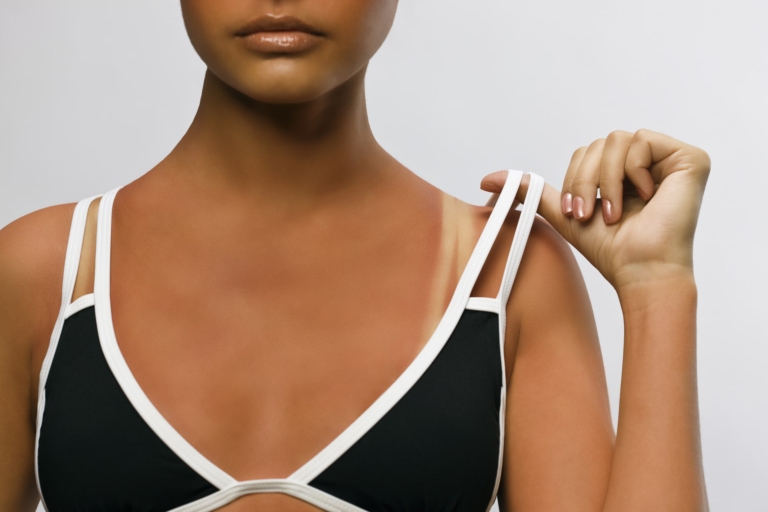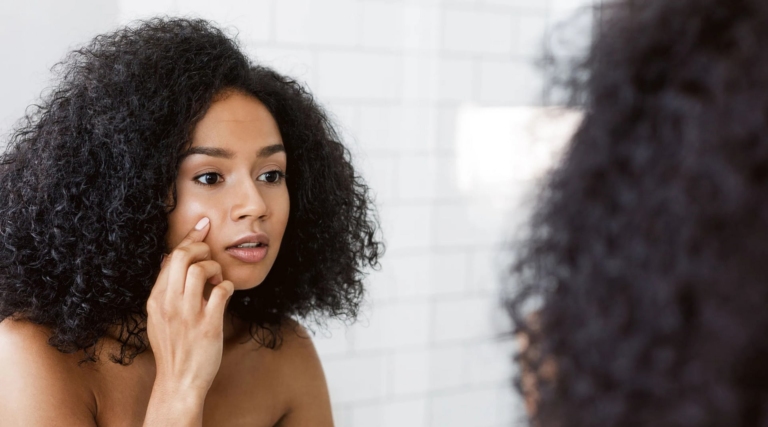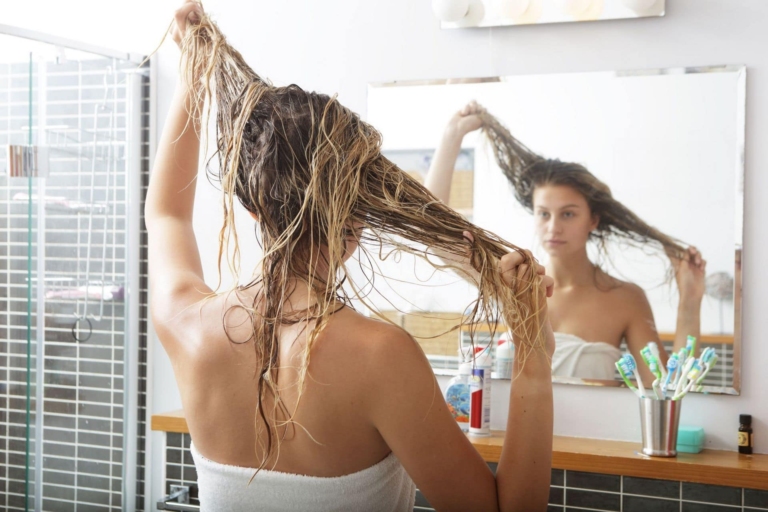Does sleeping with wet hair damage it?
You take care of your hair every day with hair treatments and the right cosmetics.
But what about caring for your hair at night?
Sleeping with wet hair or tying it up too tightly at night can cause serious damage to your hair.
How do you take care of your hair while you sleep?
When you sleep, your body regenerates.
It’s a very important time for the whole body, and the same goes for your hair.
You never forget to take care of your hair during the day.
But you probably stop to think about it when you go to bed at night.
Despite regular trimming and other hair care treatments, does your hair get tangled and damaged?
The problem may lie in an incomplete routine.
While you sleep, you’re practically inert, with no idea of what’s going on in your body and hair.
As you toss and turn, your hair is exposed to the tugging of sheets, and can get caught in buttons or zippers.
What’s more, your hair rubs against the pillow and has to support the weight of your whole head.
Even the most expensive conditioner is of little use if, unknowingly, you break your hair in your sleep and pull it out.
People with long locks of hair certainly know how difficult it is to sleep without a hairstyle.
Strands become more fragile, brittle and tangled.
Protecting your hair while you sleep is just as important as using the right cosmetics during the day.
If you don’t take care of your hair at night, you risk the serious damage you want to avoid.
How do you prepare your locks for bedtime to ensure hair recovery and safety?
Try to avoid going to bed with your hair loose and especially wet.
What can harm your hair during the night, and how can you look after it properly?
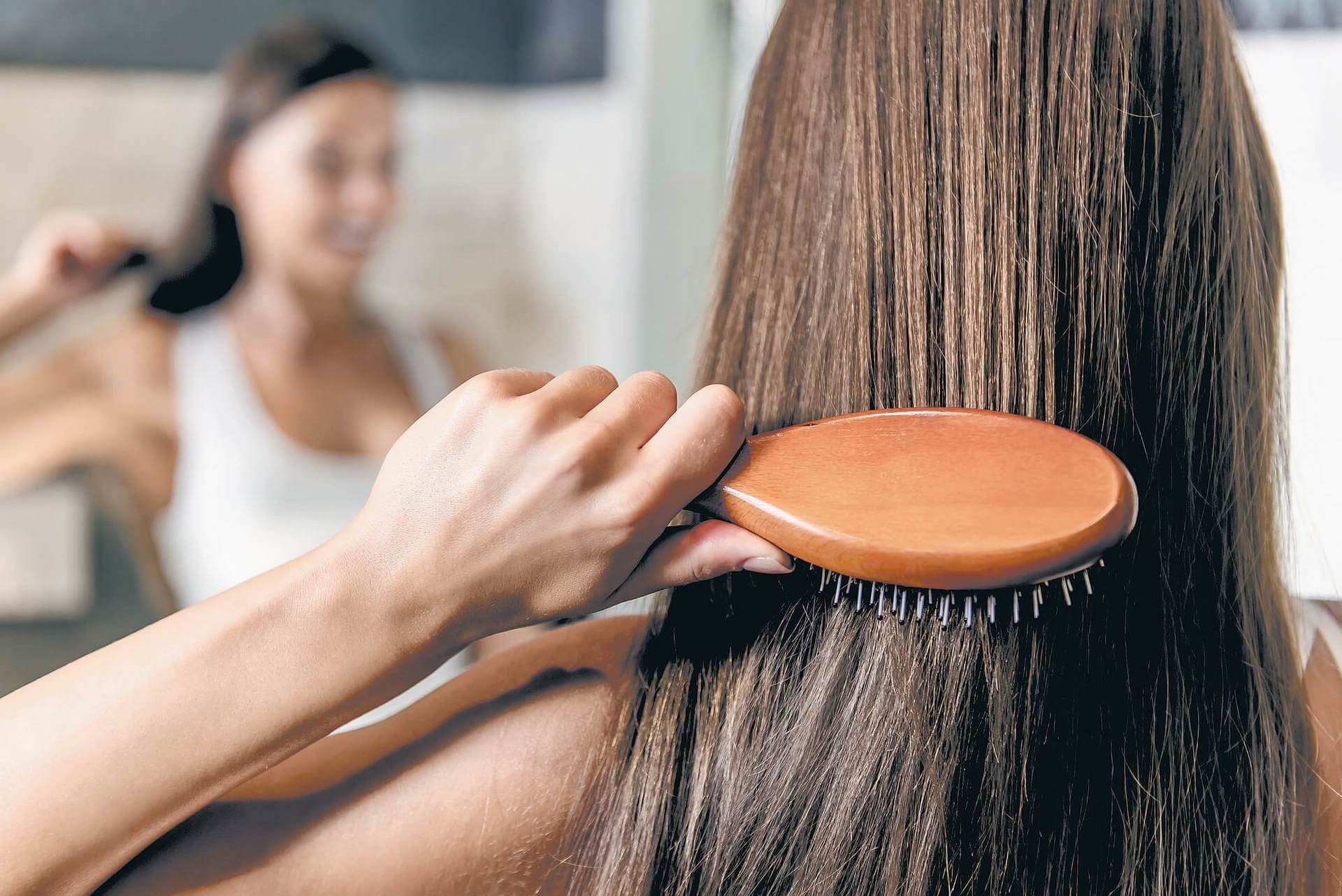
Can I tie my hair up to sleep?
You’ve probably heard that blow-drying, mainly with hot air, damages your hair.
Many people give up blow-drying to avoid damaging their hair.
As a result, they go to bed with a wet head.
However, this is far worse than blow-drying your hair.
Lying down with wet hair is a major hair care sin.
Why not lay your hair down for a good night’s rest?
Wet hair is very fragile, as its cuticles are not completely closed.
This makes your hair much more vulnerable and prone to breakage and tangling.
In addition to damaged hair, sleeping with wet strands can also lead to serious health problems.
What illnesses can be caused by such sleep?
First of all, you’re more exposed to infections, as your bedding may contain bacteria and dust mites.
The dead cells of your scalp, combined with the humidity of wet hair, are definitely conducive to the proliferation of fungi.
This, of course, increases the risk of illness.
If you sleep with wet hair, you’re also prone to itching.
Moisture from your pillow and hair can irritate the sensitive scalp and cause irritating itching.
Don’t risk the health of your hair and yourself.
Find a free moment before going to bed and use it to dry your hair.
It’s much more beneficial than going to bed with wet hair.
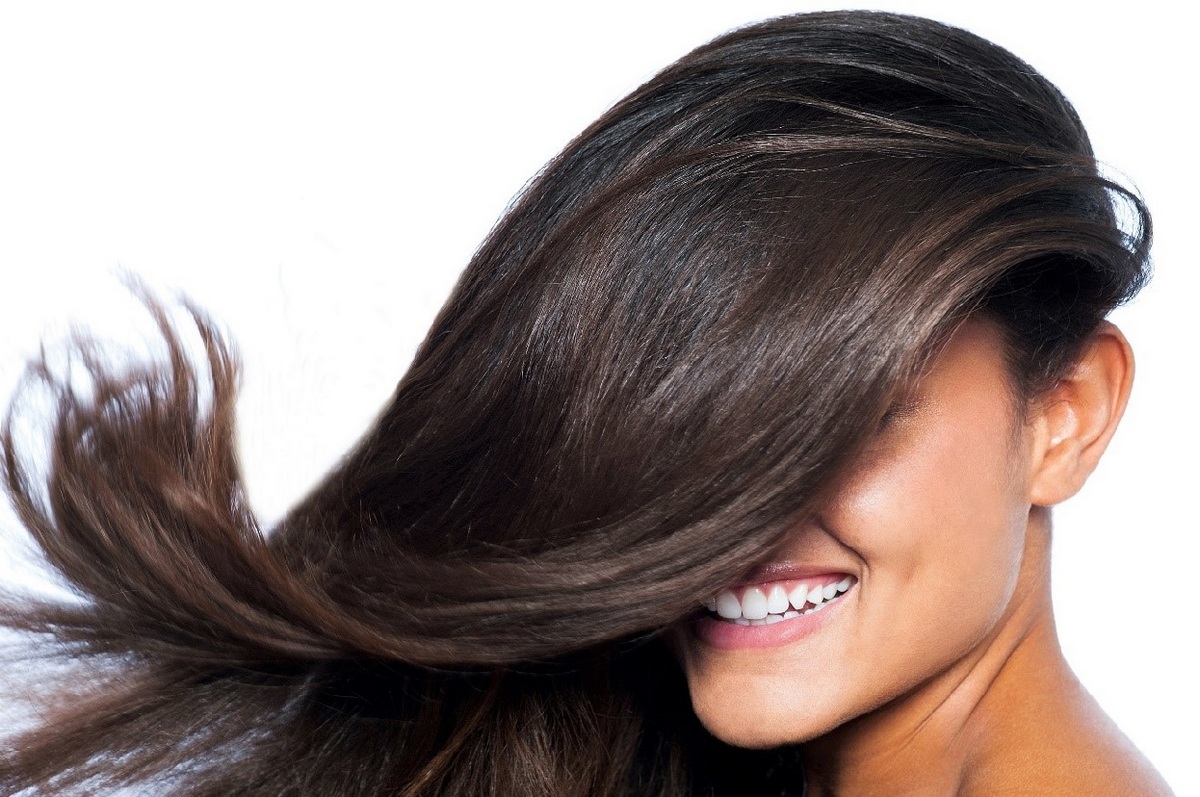
Should you tie your hair back at bedtime?
Once your hair is dry, you’re probably wondering whether you can go to bed without tying it up.
If it’s very short, yes.
However, if you have long locks, sleeping with your hair loose isn’t the best idea.
Your hair is more susceptible to damage when it’s loose, and can get caught or tangled while you sleep.
Is it better to wear a hair tie to bed?
Definitely yes.
Sleeping with a braid is a great option.
It protects your hair along its entire length.
Remember, you need to be gentle with your hair when you go to bed, so you don’t want to pull it too tight.
What you sleep on is also very important.
Unsuitable bedding, materials that are too rough or artificial, these factors can lead to tangled, static hair.
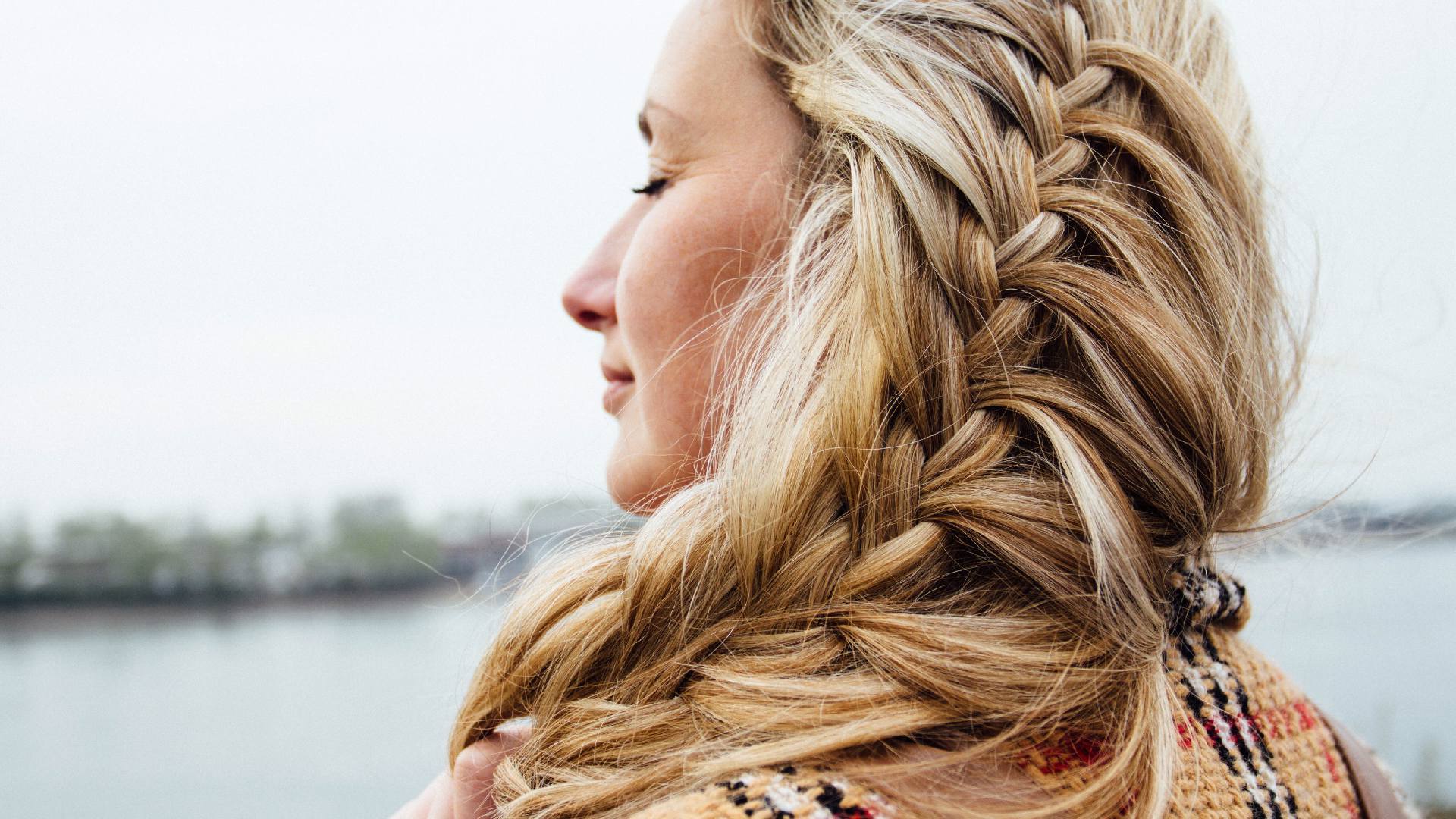
How do you sleep with long hair?
You already know that sleeping with wet hair is bad for your health and that resting with your hair tied up is good for your beauty.
But what’s the right approach?
How do you prepare your locks for bed so they can recover overnight?
Use the right headband to secure your hair.
Always choose products that won’t damage your hair.
Use terry cloth or velvet hair ties, which are gentler on your hair.
And don’t wear your hair in a tight bun or ponytail.
At night, choose to sleep in a braid or low ponytail.
Don’t forget to sleep with your hair slightly up.
If your hair is too tight, your strands won’t be able to rest properly.
Another advantage of tying your hair up at night is that you can style it quickly in the morning.
There’s no need to spend time styling strands or using hot styling appliances, like a curling iron.
If you tie your hair into a braid, you’ll have beautiful waves in the morning.
Looking for a full head of hair?
Tie it up in the evening in a loose bun on top of your hair to give relief to the roots.
In the morning, simply apply hairspray and off you go!
If you want to keep your hair straight, try sleeping with your hair on a pillow.
You can tie it into a ponytail on top of your head for added volume.
It’s very important to brush your hair well before going to bed.
Regular brushing also distributes the natural oils from your scalp to your hair, which is good for your hair.
And don’t forget that the most hair-friendly pillowcases are made of satin or silk.
They considerably reduce friction, making strands less vulnerable to mechanical damage.
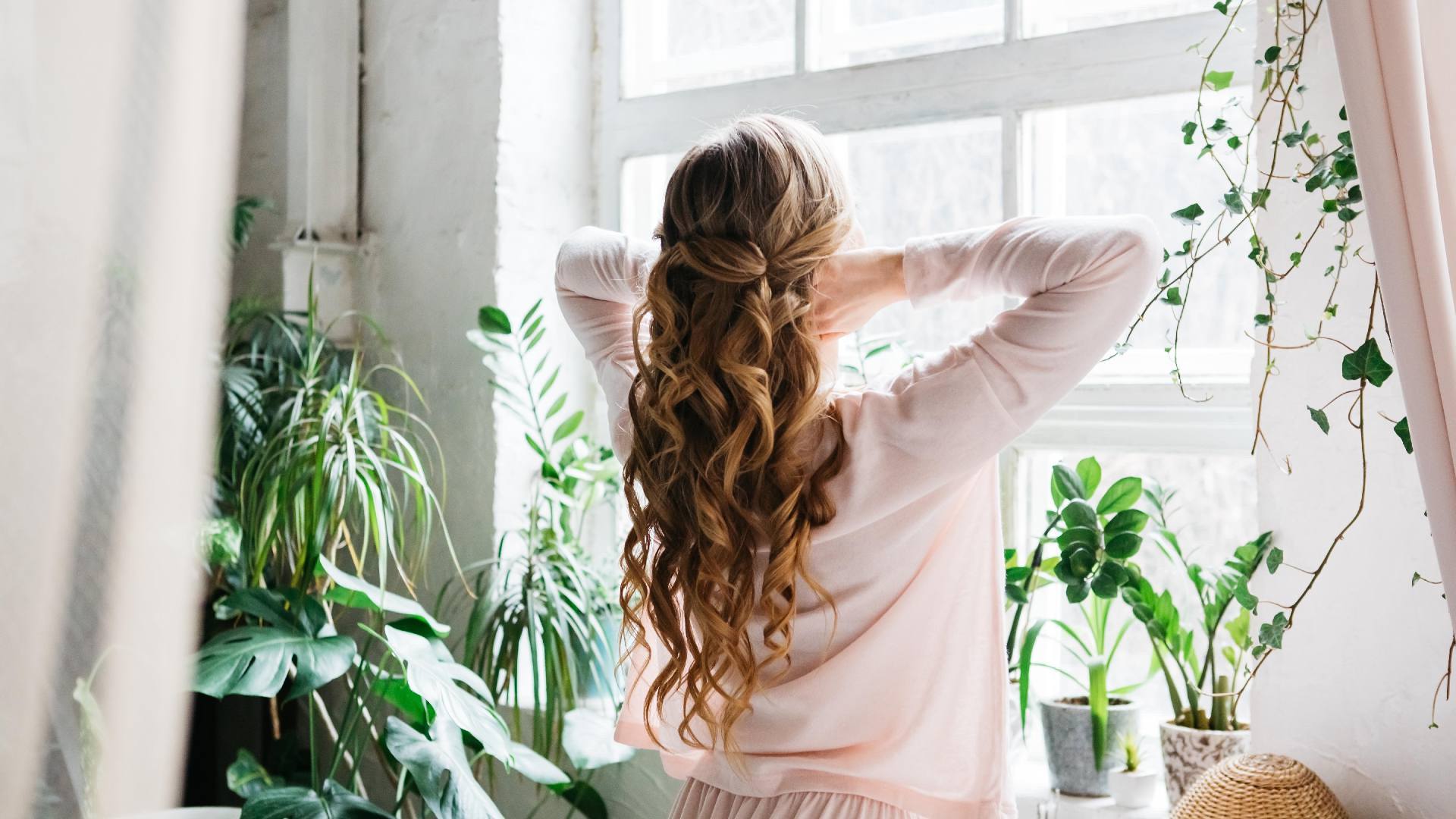
Taking care of your hair at night
The best solution, of course, is to sleep with your hair tied up in a braid or ponytail.
Use soft, velvety fabric scrunchies for styling.
Sleeping with loose hair is certainly not a good idea, as it can tangle and knot.
The result is faster hair breakage.
While you sleep, you have no control over your body and can easily damage the bonding area.
Also read: turmeric for hair
You already know how to give your hair a good night’s sleep so that it, too, can recover.
Don’t forget that sleeping with wet hair can cause a lot of discomfort, so try to avoid it.
Be sure to tie your hair back gently at night.
You’re sure to have healthy, shiny hair this way.
“One of my biggest dreams is that my company will be able to change the course of one family’s life, one child at a time by giving back to the community.”




